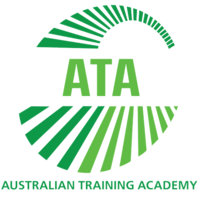
Courses for beginners
There are 8 courses available in Brisbane Queensland for beginner learners with no prior experience or qualifications.
AHC21024
Certificate II in Conservation and Ecosystem Management
Blended, On Campus, Online, Traineeship
8 - 21 months
$0 - $10,190
- There are no mandated entry requirements.





AHC10124
Certificate I in Conservation and Ecosystem Management
On Campus
6 months
$1,350
- There are no mandated entry requirements.
 Construction Skills Training Centre
Construction Skills Training Centre
PUAFER008
Confine Small Workplace Emergencies in a Facility
Blended, On Campus
2 - 4 days
$120 - $325
- There are no mandated entry requirements.



22597VIC
Course in Workplace Spotting for Service Assets
On Campus
1 day
Unavailable
- There are no mandated entry requirements.
 Interlink Training
Interlink Training
AHC31421
Certificate III in Conservation and Ecosystem Management
Apprenticeship, Blended, On Campus, Online, Traineeship
6 - 24 months
$0 - $12,068
- There are no mandated entry requirements.







Courses for experienced learners
There are 22 courses available in Brisbane Queensland for experienced learners with prior experience or qualifications.
AHC51120
Diploma of Conservation and Ecosystem Management
Blended, On Campus, Online
12 - 24 months
$0 - $6,000
- There are no mandated entry requirements.




AHC40920
Certificate IV in Conservation and Ecosystem Management
Blended, On Campus, Online
12 - 13 months
Unavailable
- There are no mandated entry requirements.


Bachelor of Environmental Science
On Campus
36 months
$23,490 - $35,130
- There are no mandated entry requirements.
Environmental Scientist
Forester
Sustainability Officer
+ 27 more
Environmental Manager
Environmental Specialist
Ecotoxicologist
Environmental Chemist
Environmental Officer
Field Assistant
Environmental Assessor
Spatial Analyst
Earth Scientist
Land Management Officer
Conservationist
Sustainability Advisor
Plant Scientist
Marine Environmental Consultant
Physical Scientist
Crop Scientist
Seismologist
Plant Pathologist
Infrastructure Planner
Hydrogeologist
Conservation Scientist
Geospatial Analyst
Energy Analyst
Marine Researcher
Aquatic Ecologist
Marine Conservationist
Geospatial Scientist



Bachelor of Arts (Indigenous Studies)
On Campus
36 months
$39,000
- There are no mandated entry requirements.
 Griffith University
Griffith University
Bachelor of Science (Biological Sciences)
On Campus
36 months
$24,900
- There are no mandated entry requirements.
 Queensland University of Technology
Queensland University of Technology
Further reading


What can you do with a Diploma of Leadership and Management?
20th April 2021
